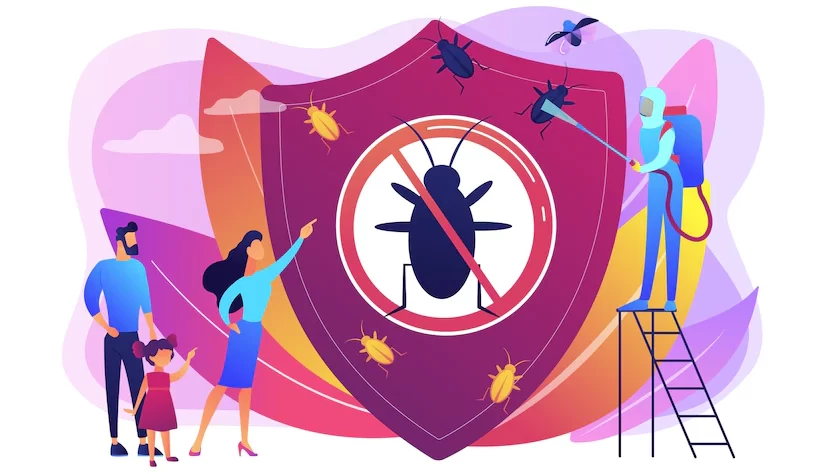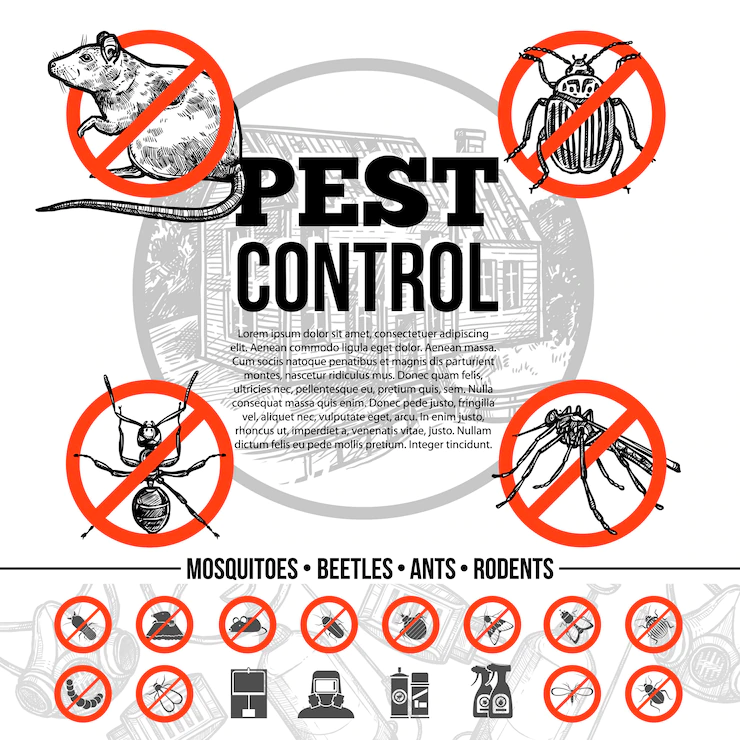What Is the Best Way to Eliminate Termites
- 1 Top 5 Ways to Eliminate Termites
- 1.1 Fumigation
- 1.2 Heat Treatment
- 1.3 Electrocution
- 1.4 Baiting
- 1.5 Physical Removal
- 1.6 What Causes Termite Infestation?
- 1.7 How to Prevent Termite Infestation?
- 1.8 Tools to Use for Termite Treatment
- 1.9 Which Method Is Best?
- 1.10 How Much Does Termite Treatment Cost?
- 1.11 What Are the Risks of Termite Treatment?
- 1.12 What if I Have an Allergy to the Chemicals Used in Termite Treatment?
- 1.13 How Often Should I Have Termite Treatment Done?
Termites are a common pest that can cause significant damage to your home if left untreated. There are various ways to eliminate termites, but some methods are more effective.
One of the most common methods of eliminating termites is fumigation. This involves using chemicals to kill the termites and is often considered the most effective method available.
But now, let’s showcase the complete list of the best ways to eliminate termites:
Top 5 Ways to Eliminate Termites
Fumigation
Fumigation uses chemicals to kill termites. This method is often considered the most effective because it can reach all termites in the affected area.
This method works by placing a tent over the entire affected area and pumping in gas. The gas seeps into all the cracks and crevices where the termites may hide and eliminate them.
Heat Treatment
Heat treatment is another popular method for killing termites. This method applies heat to the affected area to reach the required temperature to kill the termites.
Electrocution
Electrocution is a method that uses electricity to kill termites. This can be done by using an electric current to kill the termites directly or creating a barrier they cannot cross without being electrocuted.
Baiting
Baiting involves setting up stations around your property that contain food that attracts termites. The termites will then eat the food and return it to their nest, which will poison the rest of the colony.
Physical Removal
Physical removal is a less common method but can sometimes be effective. This involves physically removing the termites from your property using a shovel or other tool.
What Causes Termite Infestation?
Termites can infest your property for a few reasons. One of the most common is having wood in contact with the ground. This gives them an easy way to get into your home and eat away at the wood.
Another common cause is having cracks or crevices in your foundation or exterior walls. These provide an easy way for termites to get into your home and start causing damage.
How to Prevent Termite Infestation?
The best way to prevent termite infestation is to have regular inspections done by a professional. They can identify potential problems and help you take steps to prevent an infestation.
It would be best to fix cracks or crevices in your foundation or exterior walls. This will help prevent termites from entering your home.
In addition, you should avoid having wood in contact with the ground. If you have any wood on your property, ensure it is elevated off the ground and does not touch any soil.
Tools to Use for Termite Treatment
There are a few different tools that you can use for termite treatment. One of the most common is baiting stations. These are set up around your property and contain food that attracts termites. The termites will then eat the food and return it to their nest, which will poison the rest of the colony.
Another tool is an electric current. This can be used to kill the termites directly or to create a barrier that they cannot cross without being electrocuted.
Finally, you can also use heat treatment. This involves applying heat to the affected area to kill the termites.
Which Method Is Best?
The best method of termite treatment will depend on the specific situation. In general, baiting, heat treatment, and electrocution are considered to be the most effective methods.
If you have a significant infestation, fumigation may be necessary. This is often considered the most effective method, as it can reach all termites in the affected area.
How Much Does Termite Treatment Cost?
The cost of termite treatment will vary depending on the severity of the infestation and the method used. Fumigation is generally the most expensive option, while baiting, heat treatment, and electrocution are typically less costly.
What Are the Risks of Termite Treatment?
There are a few risks associated with termite treatment. One of the most common is that the chemicals used can harm humans and pets if misused.
Another risk is that the termites may move to another area of your property if the treatment is ineffective. This can lead to further damage and expensive repairs.
Finally, there is always a risk that the treatment will not be effective, and the termites will continue to cause damage. If this happens, you may need to have the treatment repeated or try a different method.
What if I Have an Allergy to the Chemicals Used in Termite Treatment?
If you are allergic to the chemicals used in termite treatment, you should speak to your doctor before any treatment. They will be able to advise you on the best course of action.
It is also important to note that some people may experience side effects from the chemicals used in termite treatment. These can include headaches, nausea, and skin irritation. If you experience these symptoms, you should speak to your doctor immediately.
How Often Should I Have Termite Treatment Done?
The frequency of termite treatment will depend on the severity of the infestation and the specific method used. In general, baiting and heat treatment should be done regularly, while fumigation and electrocution can be done less frequently.
You may need termite treatment more often if you have a severe infestation. Your pest control specialist can advise you on the best course of action.
Termite treatment is essential to protecting your home from these destructive pests. While some risks are involved, these should be weighed against the potential damage termites can cause. If you think you may have an infestation, you should contact a professional to have them assess the situation and recommend the best course of action.



















